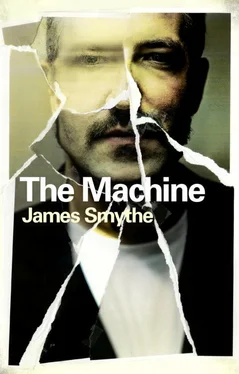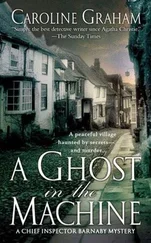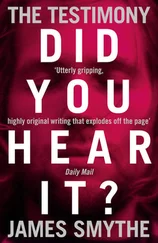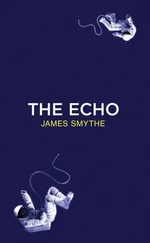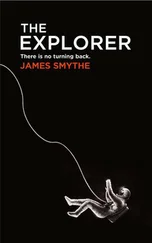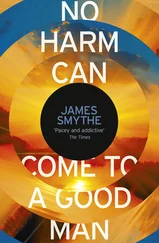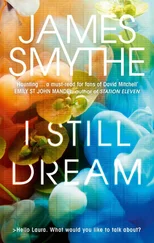Laura drinks because she doesn’t know what to say. Beth fills her glass for her, and her own. She’s past her own limit, when she had been planning on making her escape. But it feels good, she thinks, to talk about this. Laura’s the first person she’s told since she left London. She came here for anonymity and a new start, and to stop people asking her how he was doing. When Laura speaks next, it’s the first time she’s heard the question in years. It almost sounds fresh from Laura’s mouth.
How is he? she asks. She doesn’t know how to phrase it. There’s no way to ask the question, not really, because the answer is always so clear-cut.
He’s destroyed. He’s hardly my husband any more, Beth says.
But he’s coming home?
Beth nods.
You’re taking him out of the hospital? Beth notices something: Laura’s hand up at her neckline, fiddling with the necklace underneath her collar. Are you sure that’s wise? Laura asks.
I think I can help him, Beth says. I think I might be able to start making him better.
Do you pray for him? Laura asks.
What?
Do you pray for him? Because it might help. It might… I don’t know, Beth. She’s nearly in tears, Beth notices. She drinks more as Laura sobs. Some of the kids are noticing, looking over from the bar where they’re dropping shot glasses filled with some liquid the same colour as the Machine into their pints, the mixtures mingling and coalescing. They laugh at the two teachers, and one of them raises his fingers in a V to his lips, pokes his tongue through. Laura wipes her face. How can you help him now? she asks. She seems almost desperate.
There are some people – on the internet – who think you can rebuild somebody. Recreate them, almost.
Oh, no, Laura says. No, no. That’s why you got into this trouble in the first place.
Trouble?
It’s not our place to meddle, Beth. There’s an earnest look in her eyes that Beth’s seen before: in the protestors who stood outside the clinics, telling them that it was their own fault when the patients began to collapse. The malice of their self-righteousness.
Look, I shouldn’t have told you this, Beth says. She tries to wheel the conversation backwards. Laura used to be logical and easy. Not any more, now that this is out. This is a burden. It’s mine, not yours.
No, Laura says. Almost shouts. I think this has happened for a reason. It’s good that you told me. You shouldn’t go through something like this alone.
I should go, Beth says. She stands up. She necks the wine left in the glass. It’s already gone to her head: she can feel it, swimming around.
Beth, I could pray for you both. I’ll show you how, Laura says. Beth sees the cross front and centre, suddenly brought forward to the front of the shirt, hanging down. Not a simple cross: a crucifix, a miniature figure hanging from his nails. A miniature crown of thorns on his head. That’s the best way to deal with this, you know.
Beth forces her way through the crowd of students, ignoring their comments, and out into the air. She expected it to be cool, for some reason, where the pub had been so hot: she’d forgotten. Instead it’s dense and cloying. She rushes off. Laura doesn’t follow her.
She passes the point where the children leap off into the sea, and they’re still there, or a different group of children are. Leaping from the outcrop of grass-tufted rock into the pitch blackness, only knowing that they’re jumping out far enough when they smack the water. And when their friends hear that smack they all laugh, as if each plunge is a belly-flop, and each dive a bomb. She stands back by the railing – set twenty feet away for safety, because the authorities didn’t know if or when more of the cliff might slump down further – and listens to them, trying to pick out anything other than shouts and giggles. They’re only teenagers, somewhere between thirteen and sixteen, she reckons, boys and girls, and she thinks she can see that they’re all naked. But there’s nothing really sexual about this: just the leap and the darkness.
Down the path, only thirty metres away, she ignores the sign that implores her to call the telephone number on it and discuss her situation with the friendly-looking man on the other end, the sign that tells her that it’s never as bad as she thinks it is. She stands on the lip of the cliff and she can feel the alcohol inside her, making her sway. A bottle of wine, that’s all it takes these days. She thinks about when she and Vic got together, and how they were. How they would go out and drink with their friends, and how that led to their wedding, where they flooded the guests with booze. A good party, that’s all they wanted.
She looks out at the darkness, and she thinks about the nothingness that replaced all of who Vic was, like a virus. Deleting cells, replicating itself. The Machine, filling in the gaps with things that didn’t stick, stories of its own creation to cover up the cracks. And what makes her think that it will be so different this time? Because the stories are Vic? From his own mouth, 100 per cent pure and unfiltered, every part of his life spilled onto digital tape? She doubts herself. She doubts the Machine.
This isn’t me, she says aloud, to reassure herself. The kids down the way somehow hear her – and she wonders if she shouted it, even a little, or if it was just the wind – and they stop being children and become animals all of a sudden.
Go on! one of them yells. His friends laugh. She’s sure that she recognizes the voice: the same cracked broken deepness of the bike boy who lives on her estate, who calls out to her, sexually threatening even for somebody so young. Go on, you cunt! Give the world a fucking break! He doesn’t know who she is. He can’t see her from here, and he wouldn’t recognize her voice – although, she recognized his, didn’t she? – and this is all for show. If she did it, he would never forgive himself, she thinks. That’s what she hopes. To teach him a lesson would be the worst reason.
She backs away from the edge. She can’t see the boy in the darkness, and they’ve all fallen silent. There are no lights here, only the moon. She waits, suddenly scared; and then the laughs start again, and she hears the boy jump. She hears his laugh arc through the air, and the splash, and a second – maybe two – where there’s no noise. She wonders if he made it.
His laugh cuts through the air from the water below. Beth turns and heads up the path. The estate is quiet. She unlocks the door to her flat. She can hear it, already.
Beth sits in the living room on the sofa. Her last night alone. She thinks about the night before her wedding, and the forced trip to the pub.
This is your last chance, her maid of honour told her. You should relish this. Your last night alone!
Last night alone! they all chanted at her in the pink minibus that passed for a limousine.
I hope you make a few decent mistakes, her maid of honour said. She barely drank what wasn’t forced into her hand, and when she got home – not quite blind-drunk, but blurred and slurring – she telephoned Vic. He answered her, asking how she was. She told him.
No mistakes, she said.
Okay, he told her. She knew that he could never sleep once he’d woken up, and there he was the next day, at the altar with aubergine eyes. He hadn’t slept, and she had.
She opens the bottle of whisky that she’s kept underneath the sink with the cleaning products, out of sight. Vic’s favourite, a Scottish one that he got a taste for. Not the best stuff, but certainly not the cheapest. She was saving it.
I need this more than you, she says. She pours a glass and it splashes as it hits, but she doesn’t care. The smell on the carpet means nothing. The vibrations through the flat, through the sofa and into her: they’re all that she can feel. She swallows it all in one go. This can’t be real, she says. You’re trying to scare me. She puts the television on, doesn’t matter what channel, and she turns on the fans and pours another glass. She can feel it going straight to her. And Laura betrayed her, she thinks: she suggested she was something, but she was something else. How dare she judge me? Beth asks.
Читать дальше
Конец ознакомительного отрывка
Купить книгу
